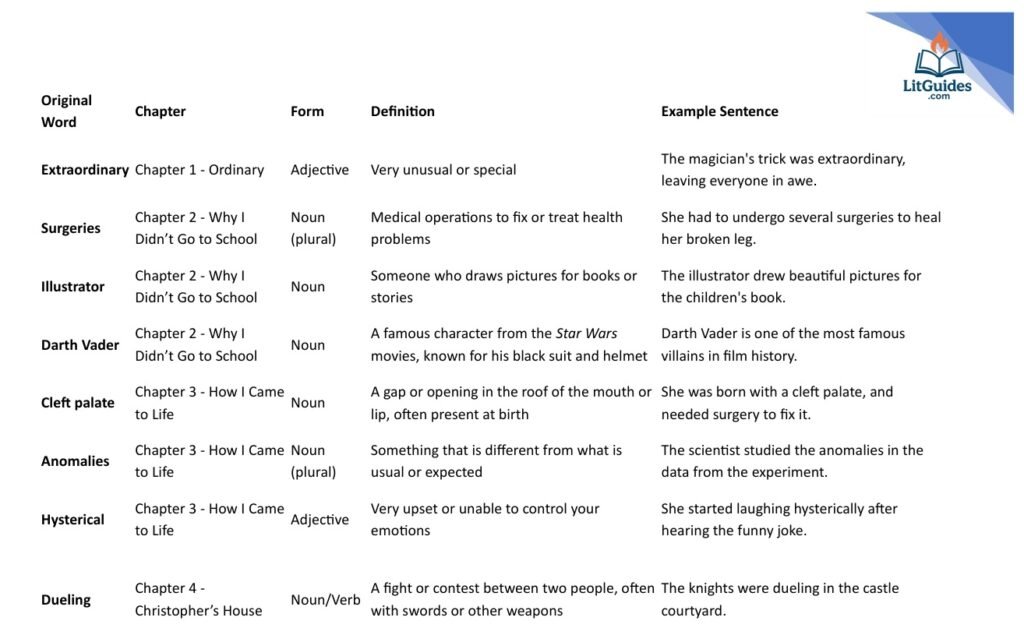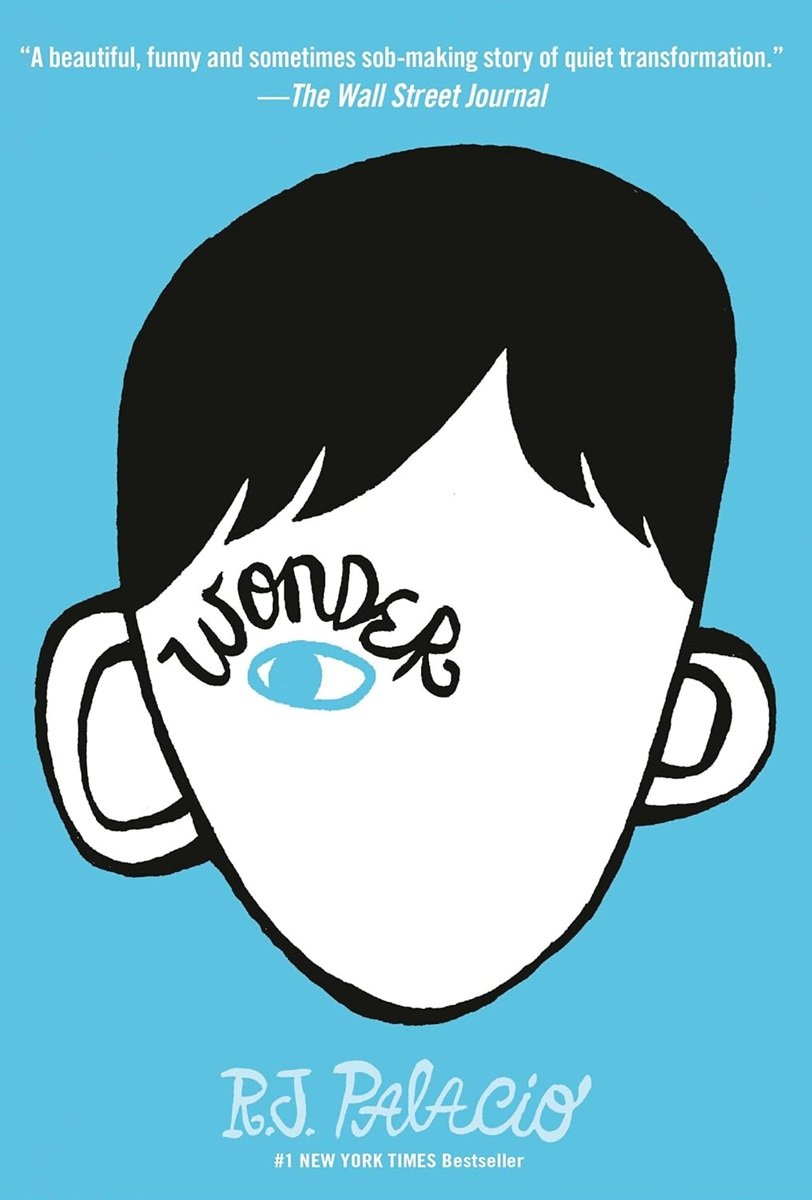R. J. Palacio’s Wonder is a moving novel that encourages empathy, kindness, and acceptance. The story follows Auggie Pullman, a boy with a facial difference, as he enters middle school for the first time and learns to navigate friendship, bullying, and self-confidence. The novel highlights the importance of seeing beyond appearances and embracing compassion. This literature guide, suitable for grades 4–8, explores key themes, character development, symbolism, and narrative structure. It also includes discussion questions, vocabulary activities, and writing prompts to help students deepen their understanding of content and themes.

| Title | Wonder |
| Author | R. J. Palacio |
| Year Published | 2012 |
| Recommended Grade Levels (U.S.) | 4th–8th grade (ages 9–13); accessible for high school discussions on empathy and ethics |
| Key Themes | – Kindness and empathy – Bullying and peer pressure – Friendship and loyalty – Identity and self-acceptance – Family support – Courage and resilience |
| Literary Elements | – Multiple narrators / shifting perspectives – Character development through voice – Symbolism (the astronaut helmet, “choose kind” motto) – Motifs of seeing/being seen – Realistic fiction |
| Rhetorical Devices | – Pathos (appeals to empathy) – Repetition (“choose kind”) for emphasis – Contrast (inner vs. outer appearance) – Foreshadowing – Dialogue-driven narrative |
| Curriculum Connections | – English/Language Arts: Character analysis, point of view, narrative voice, theme development – Social Studies/SEL: Social-emotional learning, empathy training, anti-bullying initiatives – Religion/Christian Education: Application of Biblical principles like “Love your neighbor” and “Do to others…” |
Literature Guide Contents
Vocabulary
| Activity Type | What Students Do | Aligned CCSS Standard(s) |
|---|---|---|
| Vocabulary Charts (word, chapter, part of speech, definition, example sentence) | Students learn meanings, parts of speech, and use words in sentences. | L.5.4, L.5.5, L.5.6 |
| Multiple-Choice Vocabulary Questions | Students choose the correct meaning of a word, synonym, or usage in context. | L.5.4(a-c) – Use context clues, roots/affixes, and reference materials; RL.5.4/RI.5.4 – Determine meaning in text. |
| Gap-Fill (Cloze) Sentences | Students insert the correct vocabulary word into a sentence. | L.5.6 – Acquire and use words accurately; L.5.4 – Clarify meaning using context. |
| Word Lists (student-generated) | Students brainstorm and collect thematic word lists (e.g., “words that describe Auggie’s courage”). | L.5.6 – Use academic and domain-specific vocabulary; W.5.8 – Recall information from experiences or gather information to support writing. |
| Synonyms & Antonyms Sorting | Students group words by similarities/differences in meaning. | L.5.5(c) – Use the relationship between synonyms/antonyms to understand meaning. |
| Nuance / Shades of Meaning | Students rank words by intensity (e.g., glimmered → shined → blazed). | L.5.5(b) – Recognize and explain shades of meaning in words. |
Enhance your Wonder lessons with this set of 16 vocabulary charts!
Bring vocabulary to life while teaching Wonder by R. J. Palacio with this bundle of 16 ready-to-use vocabulary charts. Each chart highlights a word from the novel and includes the chapter, form, definition, and example sentence, giving teachers everything needed to build comprehension and engagement. These charts are perfect for word walls, study guides, or classroom discussions, and they save valuable planning time.


